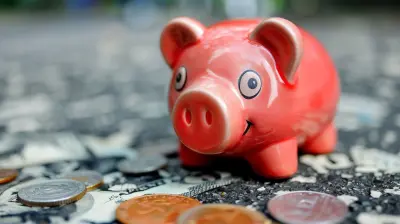20 March 2025
Credit cards have become essential tools in managing daily expenses, earning rewards, and even building credit scores. But if you're still using a basic or mid-tier credit card, you might be wondering when it’s the right time to take the leap and upgrade to a premium credit card.
It’s a valid question—premium cards come with a host of benefits, but they also carry hefty annual fees. So, is it really worth it? Let’s break it down and figure out if making the jump makes sense for you. 
What Is a Premium Credit Card?
Before we dive into when to upgrade, let’s clarify what a premium credit card actually is.A premium credit card is typically a high-end credit card that offers exclusive perks such as:
- Generous rewards programs (higher cashback, airline miles, or travel points)
- Luxury travel benefits (airport lounge access, travel insurance, and concierge services)
- Premium protections (purchase protection, extended warranties, and fraud protection)
- Exclusive lifestyle perks (dining privileges, event access, and priority services)
These cards are often marketed toward high-income individuals and avid travelers, but that doesn’t mean they’re out of reach for the average consumer. The key is understanding when it makes financial sense to upgrade. 
Signs It’s the Right Time to Upgrade
Not everyone needs a premium credit card, but here are a few signs that suggest you might benefit from one.1. You Spend Enough to Justify the Annual Fee
Premium credit cards often come with annual fees ranging from $95 to $700 (or more). If you’re spending a significant amount on your card every month—especially in categories where premium cards offer high rewards—then the benefits could easily outweigh the costs.For example, if a card offers 3% cashback on travel and you're spending $10,000 annually on flights and hotels, that’s $300 back—which might already justify a lower-tier premium card’s annual fee.
2. You Travel Frequently
Do you frequently find yourself at the airport? If so, a premium travel credit card could be a game changer.Some of the best perks for frequent travelers include:
- Airport lounge access (goodbye, overpriced airport food)
- TSA PreCheck or Global Entry credits (skip the long security lines)
- No foreign transaction fees (a must-have for international travelers)
- Complimentary travel insurance (trip cancellations, lost luggage, and more)
If you're racking up miles and constantly on the go, these perks can significantly enhance your travel experience while saving you money.
3. You Max Out Your Current Card’s Benefits
If you've been squeezing every last drop out of your current credit card’s rewards and perks, it's time to consider leveling up.For example, if your current cashback card has a $25,000 annual spending cap on bonus categories and you're hitting that limit every year, upgrading to a premium version with higher spending limits or more bonus categories makes sense.
4. You Want Better Purchase and Travel Protections
One of the underrated benefits of premium credit cards is the added protection they offer.Think about this: If you buy a new laptop and it’s stolen within a few months, some premium cards refund or replace the item under purchase protection. Similarly, if your flight is canceled or luggage is lost, premium travel cards reimburse your expenses.
This isn’t just a luxury—it’s peace of mind. If you want extra security on your purchases and travel, a premium card might be a smart move.
5. Your Credit Score Can Handle It
Most premium credit cards require excellent credit (typically 700+ FICO score).If you’ve been responsible with your credit, consistently paying off balances, and maintaining a low credit utilization ratio, your approval chances are high. But if your credit score isn’t quite there yet, it might be worth improving it before applying—premium cards can sometimes result in hard inquiries that could temporarily lower your score. 
When Should You Hold Off on Upgrading?
Just because premium credit cards offer fantastic perks doesn’t mean they’re right for everyone. Here’s when you might want to pump the brakes on upgrading.1. You Carry a Balance Month-to-Month
If you don’t pay off your balance in full every month, a premium card is probably not worth it.Premium credit cards often have higher APRs, so if you’re carrying debt, you could end up paying more in interest than you earn in rewards. In this case, focus on paying down your balance first before upgrading.
2. You Don’t Travel Enough to Utilize the Perks
Many premium cards are geared toward travelers. If you don’t fly often or stay at hotels regularly, paying a $500+ annual fee for perks like lounge access probably isn’t worth it.Instead, a mid-tier credit card with cashback or general rewards might be a better fit.
3. You Won’t Use the Card’s Benefits
Ask yourself: Will I actually use these perks?If you’re looking at a card primarily because of its fancy benefits, but you won’t take advantage of them, it's a waste of money. If the perks don’t match your lifestyle, skip the upgrade.
4. You’re Not in a Financially Stable Position
If your current financial situation is unstable, hold off on upgrading.A premium credit card shouldn’t encourage reckless spending. If you’re struggling with budgeting, saving, or managing debt, getting a higher-limit card might tempt you to overspend. Financial stability should always come first. 
How to Choose the Right Premium Credit Card
If you’ve decided that upgrading makes sense, how do you pick the right card? Here are some factors to consider:1. Match the Card to Your Spending Habits
Look for a card that rewards what you already spend on. If you travel often, pick a card with travel perks. If you love dining out, find a card that offers bonus rewards on restaurants.2. Compare the Annual Fee vs. Perks
Will you use enough benefits to outweigh the fee? If a card costs $550 annually but you’re only getting $200 in value, it's not worth it.3. Consider the Rewards Program
Some cards offer cashback, others give you points or airline miles—choose a program that fits your lifestyle.4. Look at Sign-Up Bonuses
Premium cards often come with huge welcome bonuses (sometimes worth hundreds of dollars in travel or cashback). Make sure the spending requirement is achievable before committing.5. Check Interest Rates & Fees
Even if you plan to pay in full every month, it’s still good to check the card’s APR, late fees, and foreign transaction fees (if applicable).Final Thoughts
Upgrading to a premium credit card can be a smart move—if done at the right time for the right reasons. If you’re spending enough to justify the annual fee, traveling frequently, and maximizing card perks, it can be an excellent financial tool.However, if you’re carrying a balance, don’t travel much, or aren’t in a stable financial position, it’s better to hold off.
At the end of the day, the goal of a credit card isn’t just status or fancy perks; it’s about providing real financial benefits that improve your lifestyle. If a premium card aligns with your spending habits and financial goals, then it might just be time for an upgrade.








Miranda McFarland
Great tips! Timing is everything in finance!
April 3, 2025 at 2:53 AM